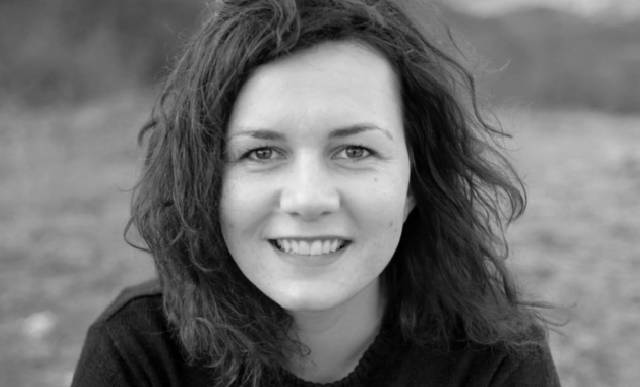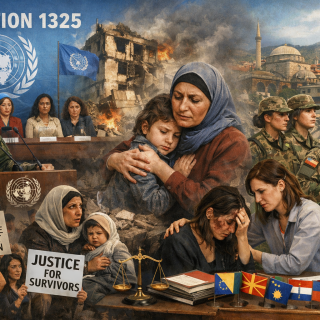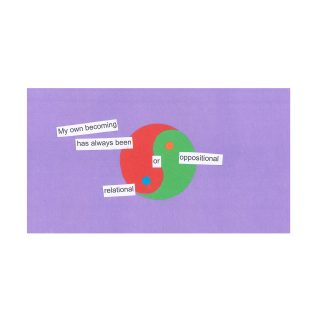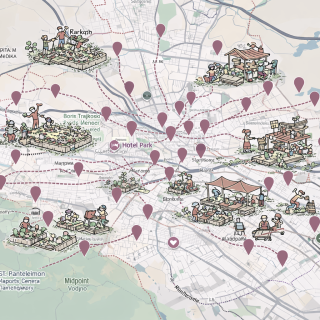In a time when political instability shakes the very foundations of our society once again and the public space is increasingly flooded with fear and divisions, I ask myself what it means to be a peace activist today.
Our past relentlessly reminds us of the fact that peace is not something to be taken for granted. In the current political climate, peace activism is not just a prevention activity, but also a daily fight to preserve security, dialogue and hope.
Political insecurity and challenges of peace activism
Political tensions present in Bosnia and Herzegovina, but also throughout the region, have a deep impact on the room for maneuver of peace activists. Growing mistrust, decreasing space for dialogue, and violent rhetoric are threatening to fully suppress any attempts to build bridges among people.
In such an atmosphere, peacebuilding becomes even more challenging, but also more necessary. The daily engagement of activists reminds us that peace is not a static condition, but rather a dynamic process that requires permanent attention and dedication.
Those of us who are active in the field feel that small initiatives are more important today than ever before. Every discussion, workshop or encounter between people from different communities constitutes a small but important step towards taking action against the growing polarisation.
War veterans as peace allies
In the context of the increasingly pronounced political uncertainty in Bosnia and Herzegovina, the stories of veterans who choose peace today seem almost incredible. For this very reason, they are necessary. While the prevailing political discourse relies on divisions, fear and mobilisation of ”one’s own” people, their willingness to go beyond the imposed limits and open a space for dialogue with former enemies shows a subtle, yet deep potential for social transformation. Not because they ignore the past, but rather because they are willing to take into account its complexity.
Today, war veterans, those that survived the deepest war wounds, are key allies in peacebuilding. The exhibition and book Dolazimo u miru of the Centre for Non-Violent Action (CAN) present stories of strong persons who chose the path of reconciliation in spite of their own trauma.
Their courage and willingness to share their experiences add weight to peacebuilding. Their stories show that peace is not merely the end of war, but also the beginning of a new and lengthy healing process of the society.
What experiences of the Centre for Non-Violent Action show is that the culture of remembrance does not have to be based on exclusivity and victim hierarchy. On the contrary, war veterans, who visit sites of suffering together, organise commemorations and talk about their own mistakes and shape a different type of social remembrance that is not trapped in collective narratives, but rather opens up space for personal and human aspects and empathy.
The encounters with war veterans have taught me that true reconciliation is impossible without facing the past. In my opinion, their ability to use the language of reconciliation in spite of everything they experienced is one of the most powerful pieces of evidence that changes are possible. In a time when peace is increasingly taken for granted or used as a political platitude without any essence, these people remind us that peace is not the absence of war, but rather a process that requires courage, responsibility and continuous facing ourselves and others. And that might even be the greatest challenge in our society: building a peace that is not just a political declaration, but the experience of daily encounters – including remembrance, difference and hope.
Role of young people in preserving peace
Young people play a special role in this process. They are the ones that have not participated directly in wars, but have inherited the burden of divisions. Unless we give them a chance to learn about a different past and a common future through education, dialogue and joint projects, we risk permanent divisions. Young people have to be involved as equal actors, not just passive observers. Their energy, creativity and openness can be a driver of new regional initiatives.
As a peace activist, I believe that young people should be given more space and trust, because they frequently have the courage to imagine the world without the old hostilities.
Lack of reaction and need for a wakeup call for the civil society
In spite of the seriousness of the current political situation, the fact that there was no reaction of the largest part of the civil society is worrisome. There were no loud requests for preserving the peace or strong campaigns to mobilise citizens against the politics of fear and divisions. The silence that reigns in the public space during key moments reminds us how important it is to have an alert, courageous and solidary civil society, especially during moments of crisis.
Passiveness, fatigue and the sense of helplessness are understandable after decades of continuous crises, but now we need a reawakening. If we as a society do not recognise dangers on time, we might experience peace as a lost chance instead of a permanent achievement.
In this context, the experiences of war veterans who chose peace can be a strong inspiration. Their ability to recognise their own responsibility and act in spite of social pressure shows that changes are possible. Connecting war veterans and young persons can be a key step in building a more resilient civil society. While war veterans bring their experience of facing the past to the table, young persons bring their energy and vision of a society without divisions. Joint initiatives connecting these generations – through workshops, public campaigns and joint memorialisation actions – can help raise the awareness of the public at large and build a new culture of peace that will not be based on silence, but rather an active choice of dialogue and solidarity.
Need for stronger regional initiatives
However, in order to preserve and build peace, we need stronger and better coordinated regional initiatives.
Peacebuilding cannot take place in isolation within the borders of a country – it has to be a joint project of all of us in the region. Joint trainings for young activists, regional forums for facing the past, joint exhibitions and campaigns for promoting a dialogue – all these are tools we have to use more frequently. We may not allow politicians to create divisions by reopening old wounds.
A lack of joint efforts, peacebuilding initiative networking and mutual support might lead to renewed divisions as a result of political crises.
We need more regional programmes that directly connect persons: former war veterans, young leaders, women peace activists, cultural workers. We need to build bridges that will not depend on the current political situation, but rather shared values. Peace activism must be louder, more visible and decisive. It has to include different voices – not only the voices of formal activists, but also common people who wish a peaceful life for themselves and their children.
Personal experience and responsibility
As someone who has been a peace activist for years, I feel the responsibility to not give up, especially now, at a moment of political uncertainty.
Although the obstacles are sometimes terrifying, my experience is telling me that even the slightest step forward – an honest conversation, an open letter, a joint workshop – can be the cornerstone of something greater.
To be a peace activist today means to believe in the power of small steps and that every act of reconciliation has its effect. In spite of fatigue, frustration and occasional feeling that everything is futile, I am convinced that every effort makes sense, because peacebuilding is not the result of big words, but rather silent and persistent daily acts.
To be a peacekeeper at a time of political crisis means to be ready for challenges, but also to believe in potential changes. Peace is not to be taken for granted. It is the result of courage to face the past, patience to build trust and persistence to engage in a dialogue even when everything seems to be against us. It is time for peace activism to be strengthened through regional initiatives, joint efforts and unwavering faith that together we can build societies that will not repeat the same mistakes. Peace is our responsibility – every day anew.
Mirjana Trifković has been working on facing the past and peace building projects and programmes for more than ten years, focusing on peace education of youth and work with associations of victims of war in Bosnia and Herzegovina. She worked at the Court of Bosnia and Herzegovina as an expert associate at the War Crimes Chamber and she holds a degree in law from the Faculty of Law of the University of East Sarajevo. She is a peace building trainer and Gestalt psychotherapy education and trauma education trainer and advisor. At the moment, she is working as a consultant for international organisations in the field of transitional justice, facing the past and peace building in Bosnia and Herzegovina.




